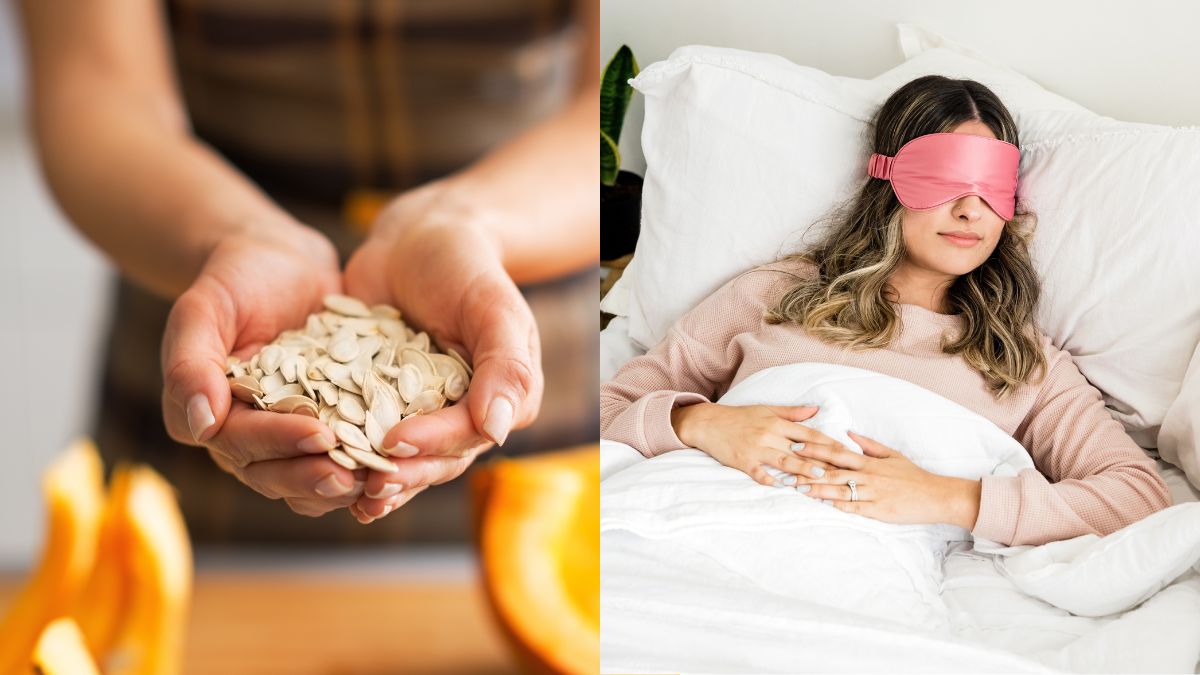- By Prerna Targhotra
- Thu, 09 Nov 2023 03:49 PM (IST)
- Source:JND
Benefits Of Pumpkin Seeds For Better Sleep: A majority of people struggle with sleep problems on a daily basis. There are a number of factors that contribute to sleep problems in individuals. From lifestyle habits to foods we eat and stress can put a burden on an individual’s health and well-being. According to John Hopkins Medicine, getting a bad night of sleep now and then is annoying, but not a health risk. However, chronic poor sleep may increase the likelihood of developing dementia, heart disease, type 2 diabetes, obesity and even cancers of the breast, colon, ovaries and prostate.
Consuming certain nutritious foods that are rich in vital nutrients can promote better sleep quality. Pumpkin seeds are known to be incredibly healthy nuts that one can include in their daily diet. Eating a handful of roasted pumpkin seeds before bedtime can enhance sleep.
Watch the video below about tips to get better sleep:
Benefits Pumpkin Seeds
1. Diabetes Management
According to WebMD, pumpkin seeds are high in magnesium, which most people don’t get enough of in their diet. Magnesium content helps regulate blood sugar levels, lowering your diabetes risk.
ALSO READ: 5 Health Benefits Of Drinking Carrot And Beetroot Juice
2. Heart Health
The high content of magnesium in pumpkin seeds helps in lowering and regulating blood sugar levels in individuals. Foods that are high in magnesium are also associated with lower risk of stroke and other heart diseases.
1699525145570.jpg)
Benefits of pumpkin seeds for better sleep (Image Credits: Canva)
3. Enhances Sleep
Snacking on pumpkin seeds before bed may help you get a better night’s rest. Pumpkin seeds are a natural source of tryptophan, an amino acid that promotes sleep. According to WebMD, he zinc, copper, and selenium in pumpkin seeds can also affect sleep duration and quality.
ALSO READ: Can Air Pollution Trigger Asthma? Doctor Shares Prevention Tips Amid Increasing Air Pollution
4. Anti-Inflammatory
Pumpkin seeds have an abundance of antioxidants that protect body’s cells from disease-causing damage and also reduce inflammation. These small seeds are also a great source of dietary fibre that maintain the function of liver, bladder, bowel and joints.
(Disclaimer: This article is for informational purposes only. It is not a substitute for professional advice, diagnosis or treatment.)

